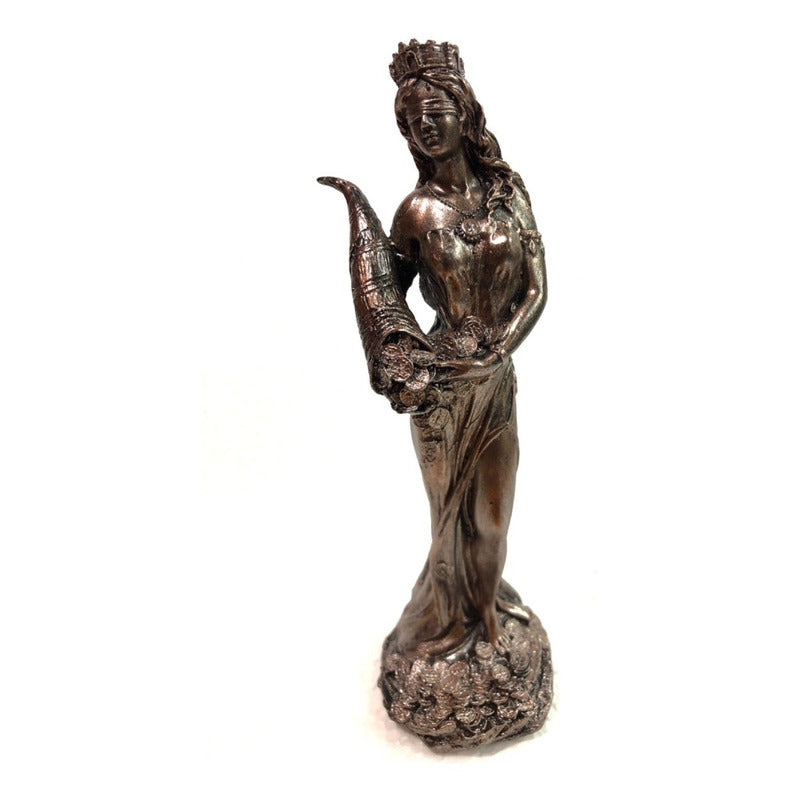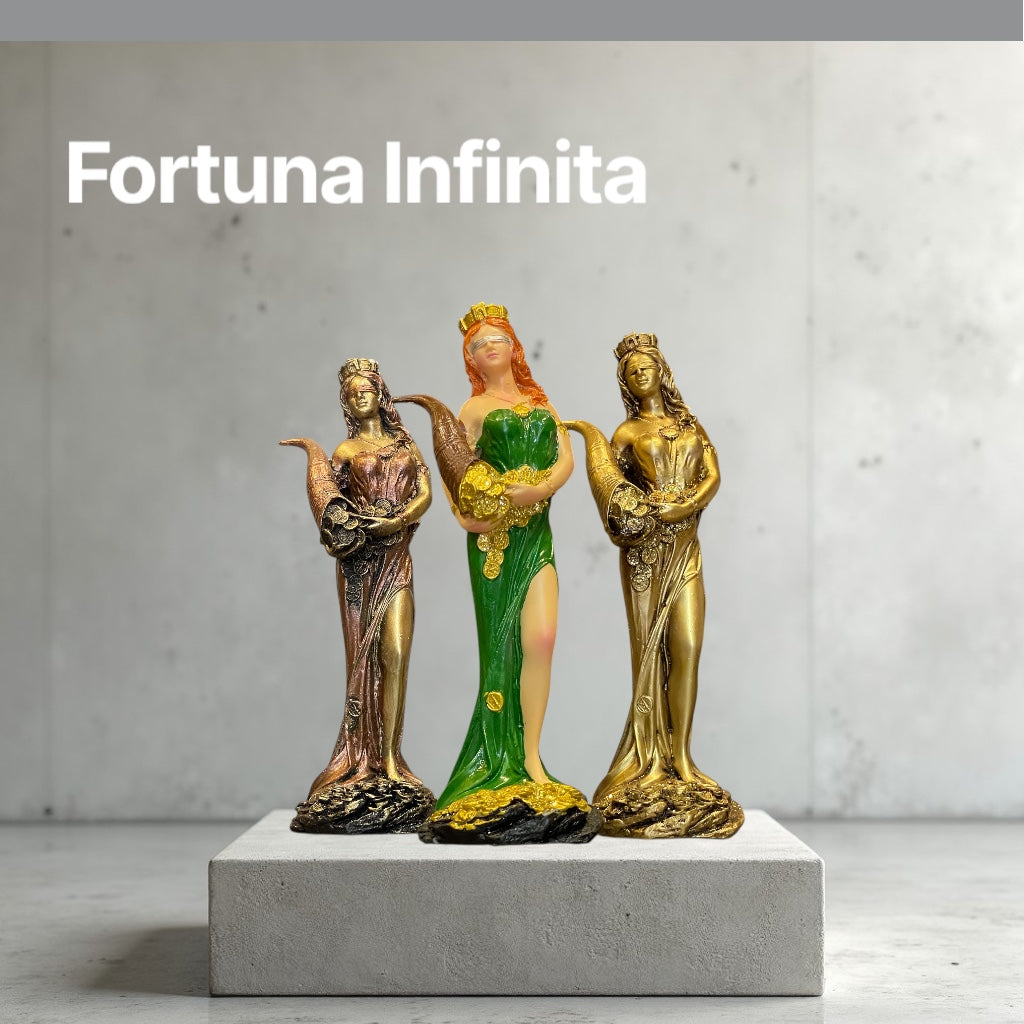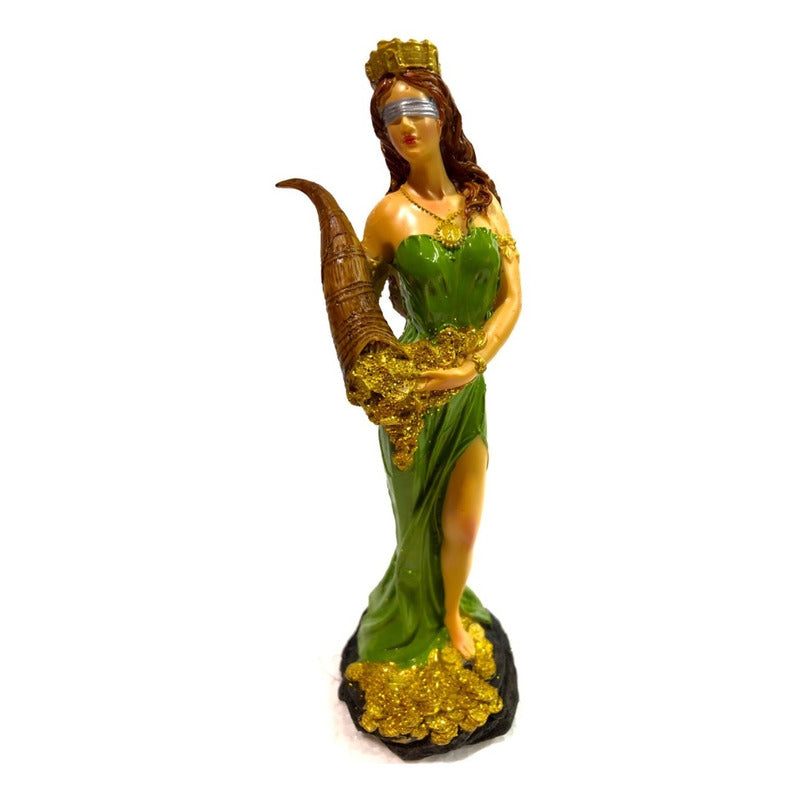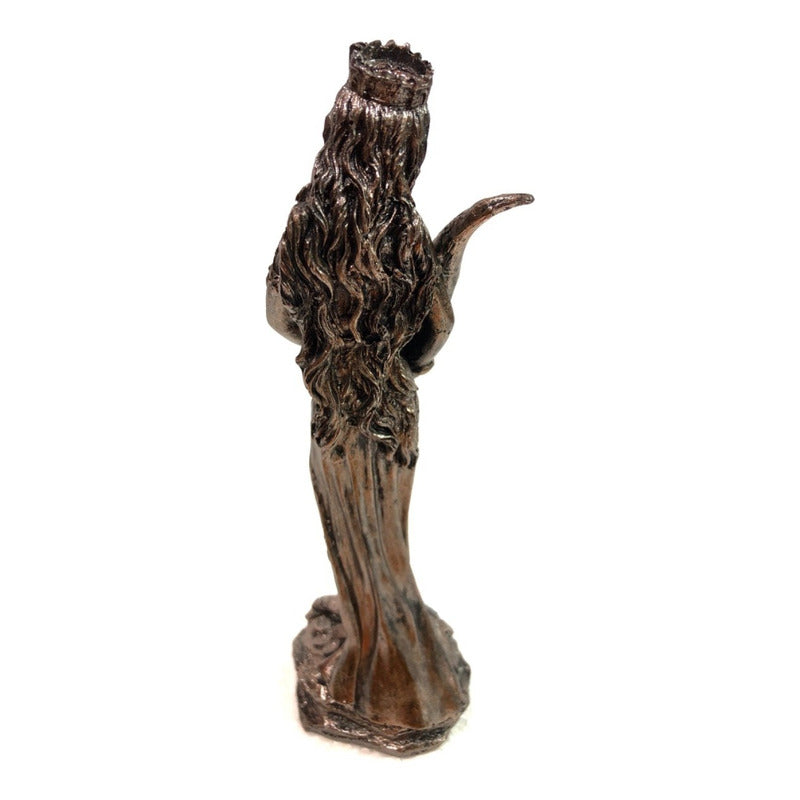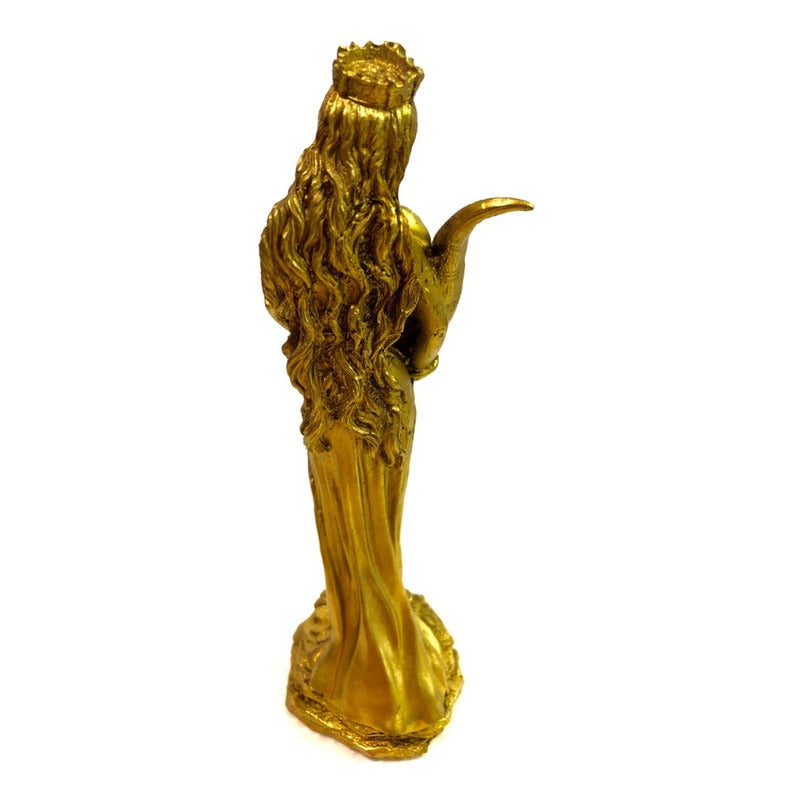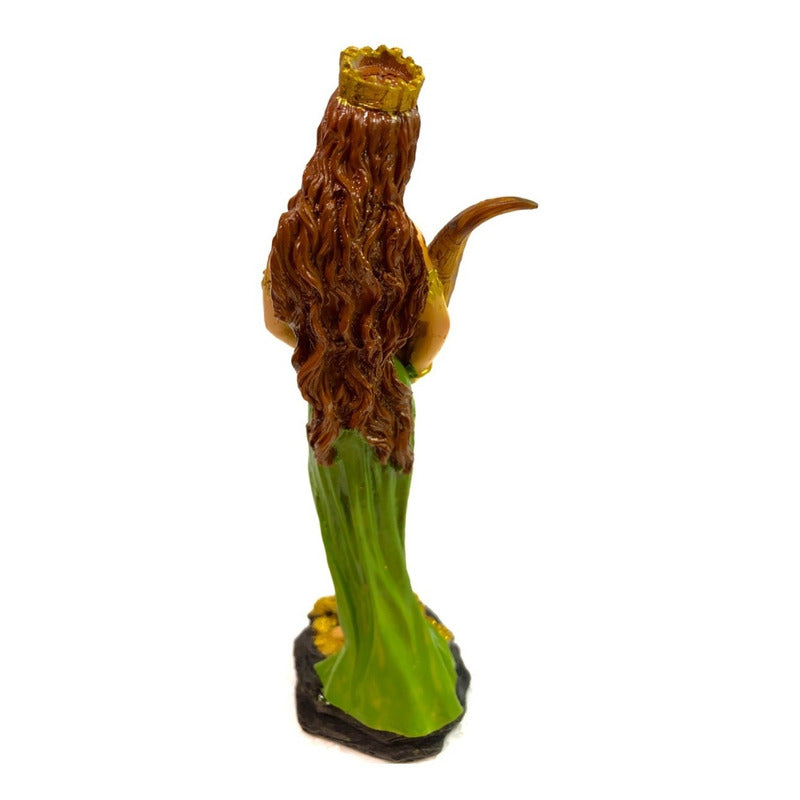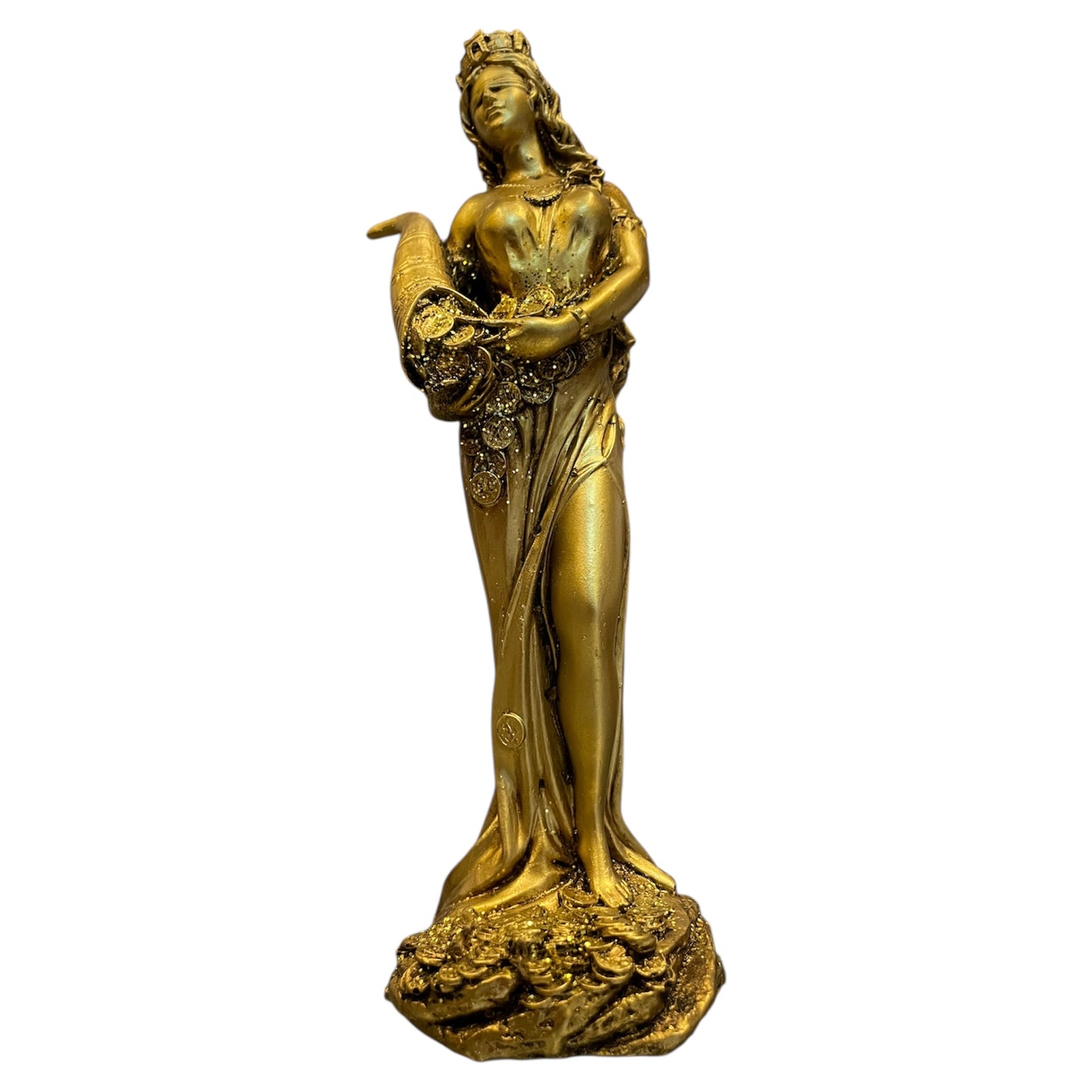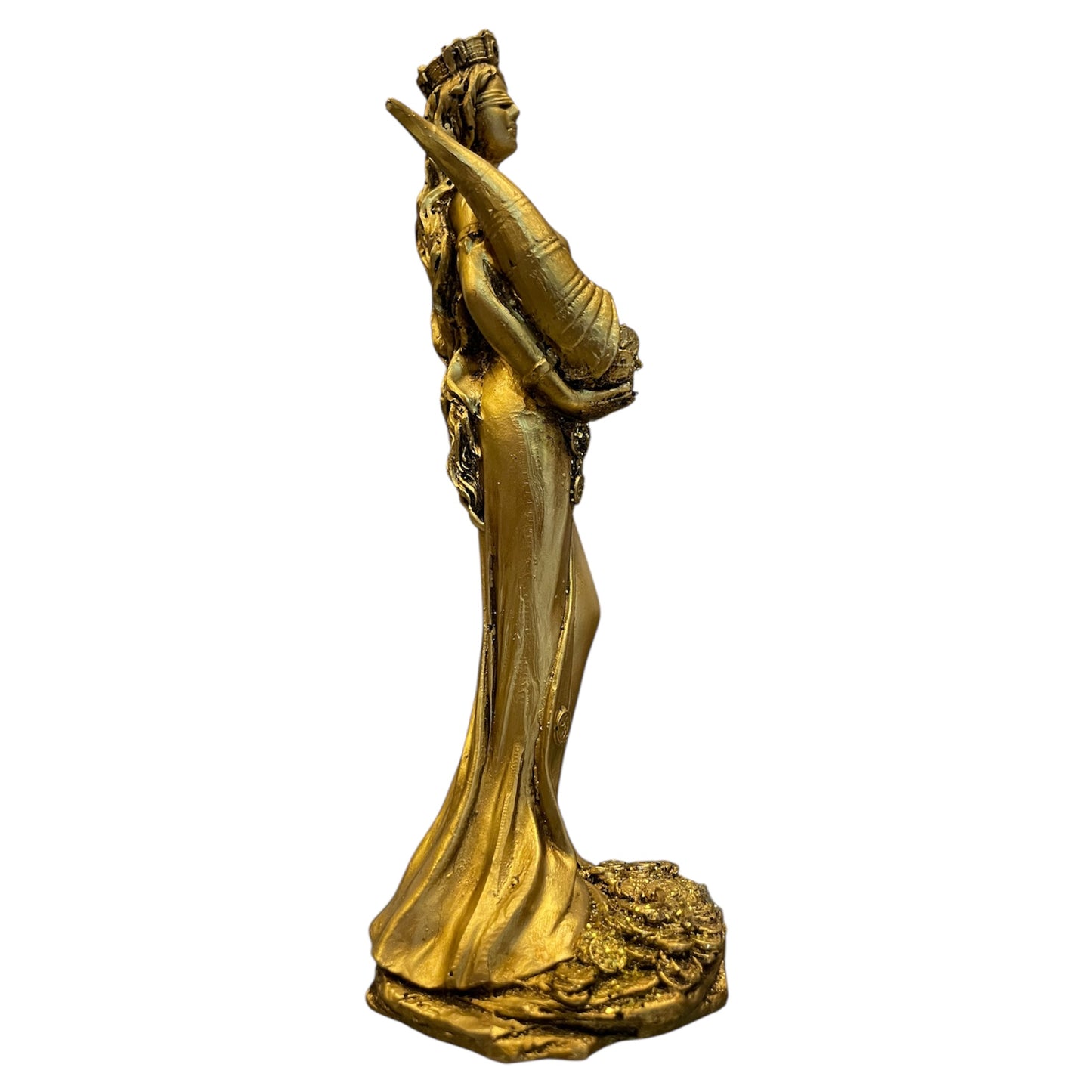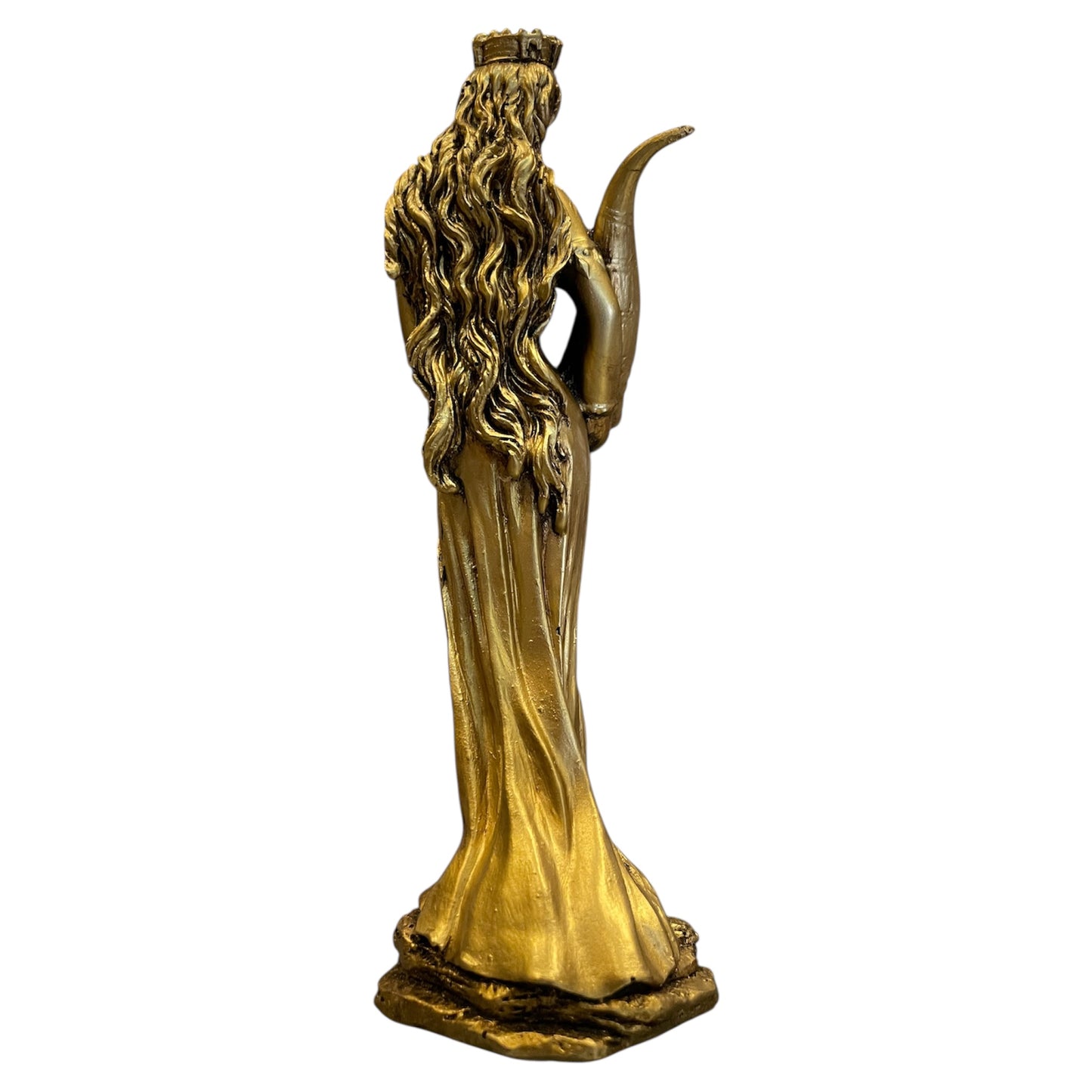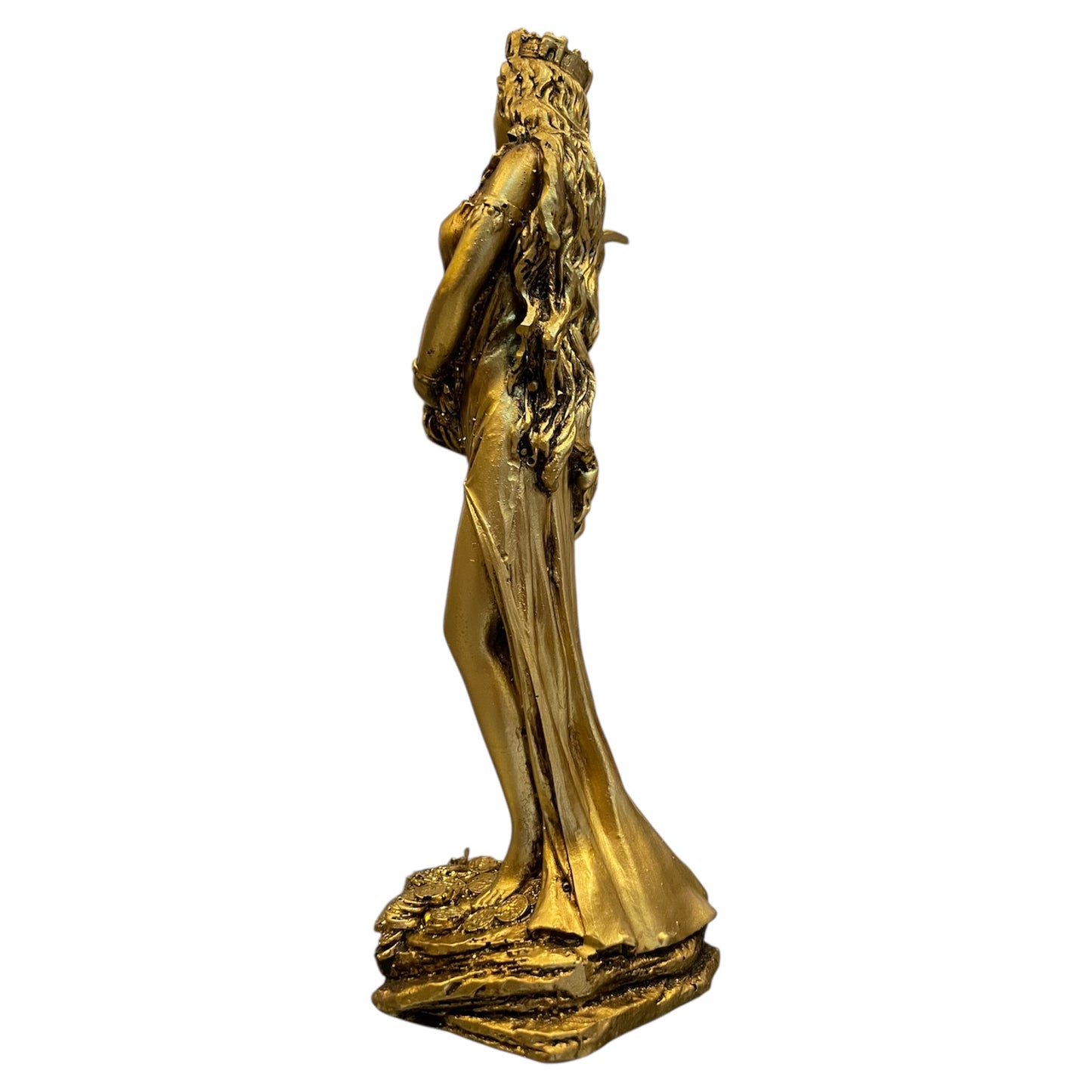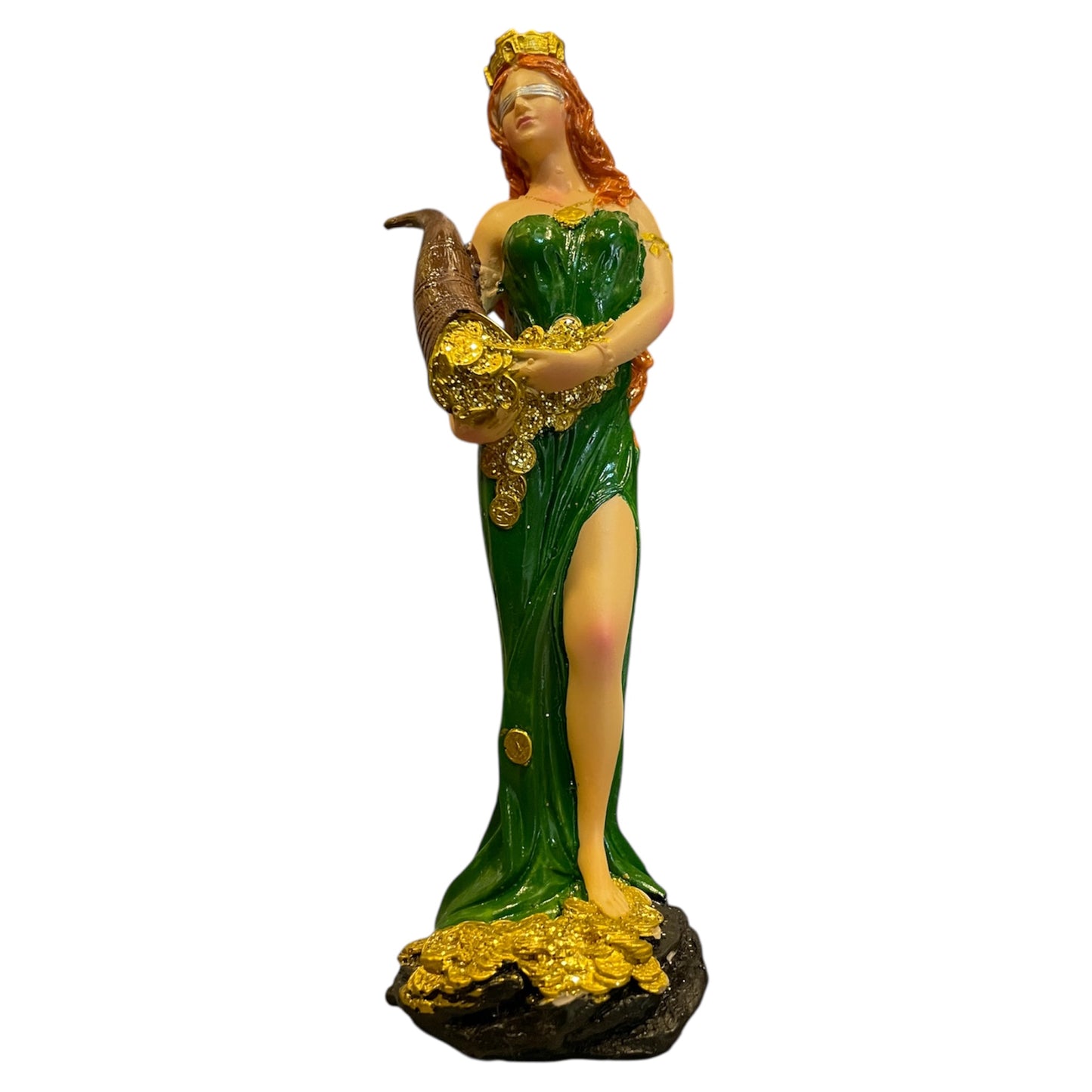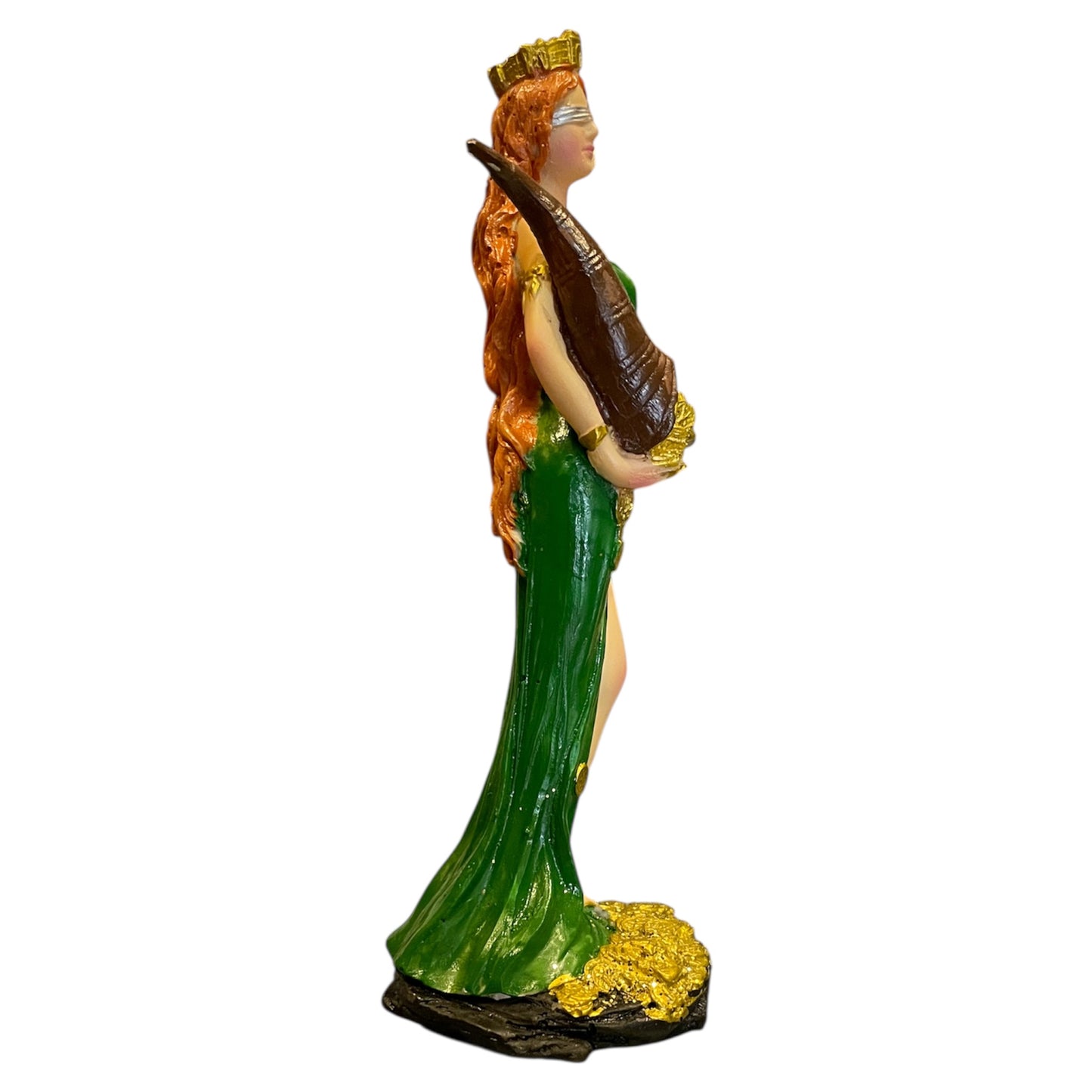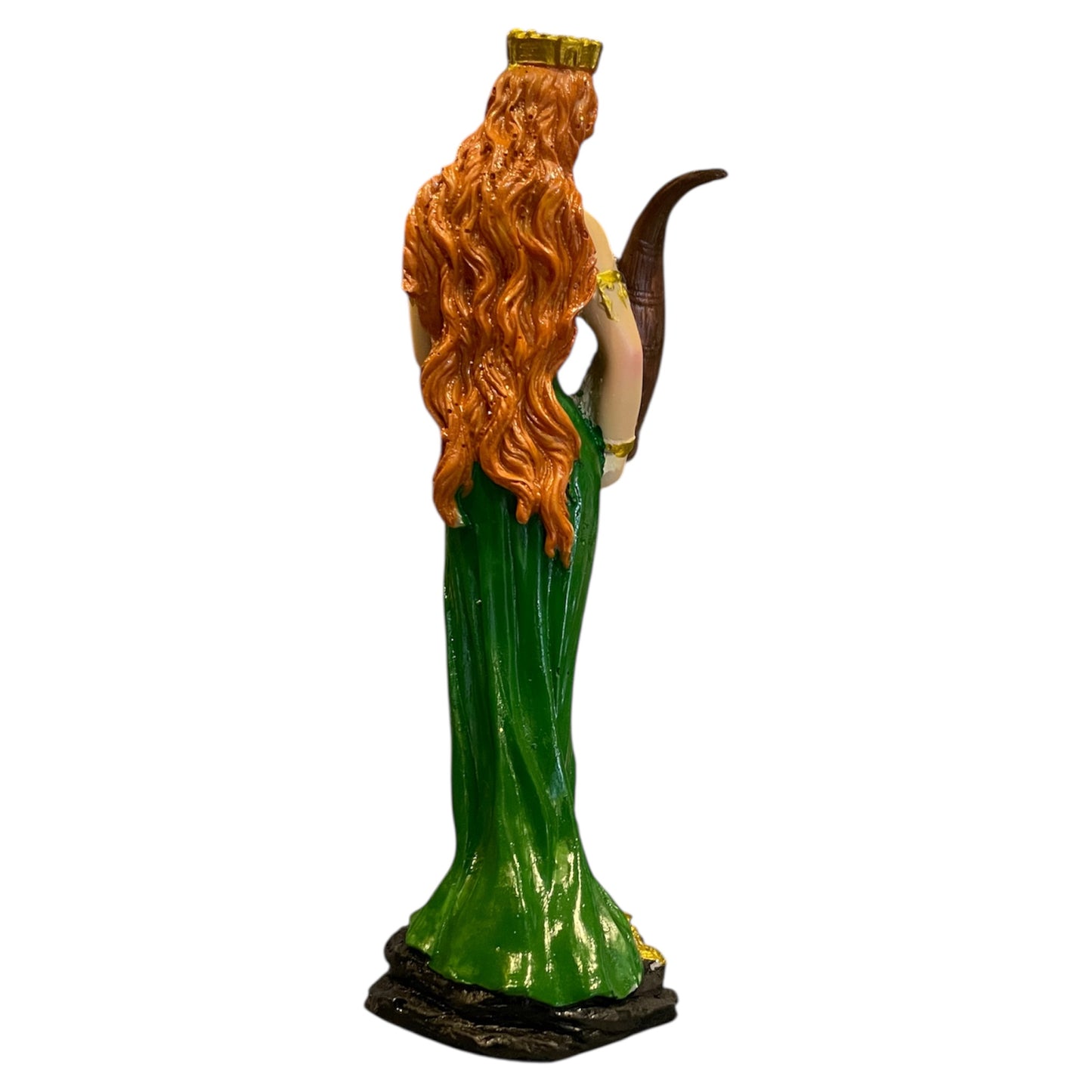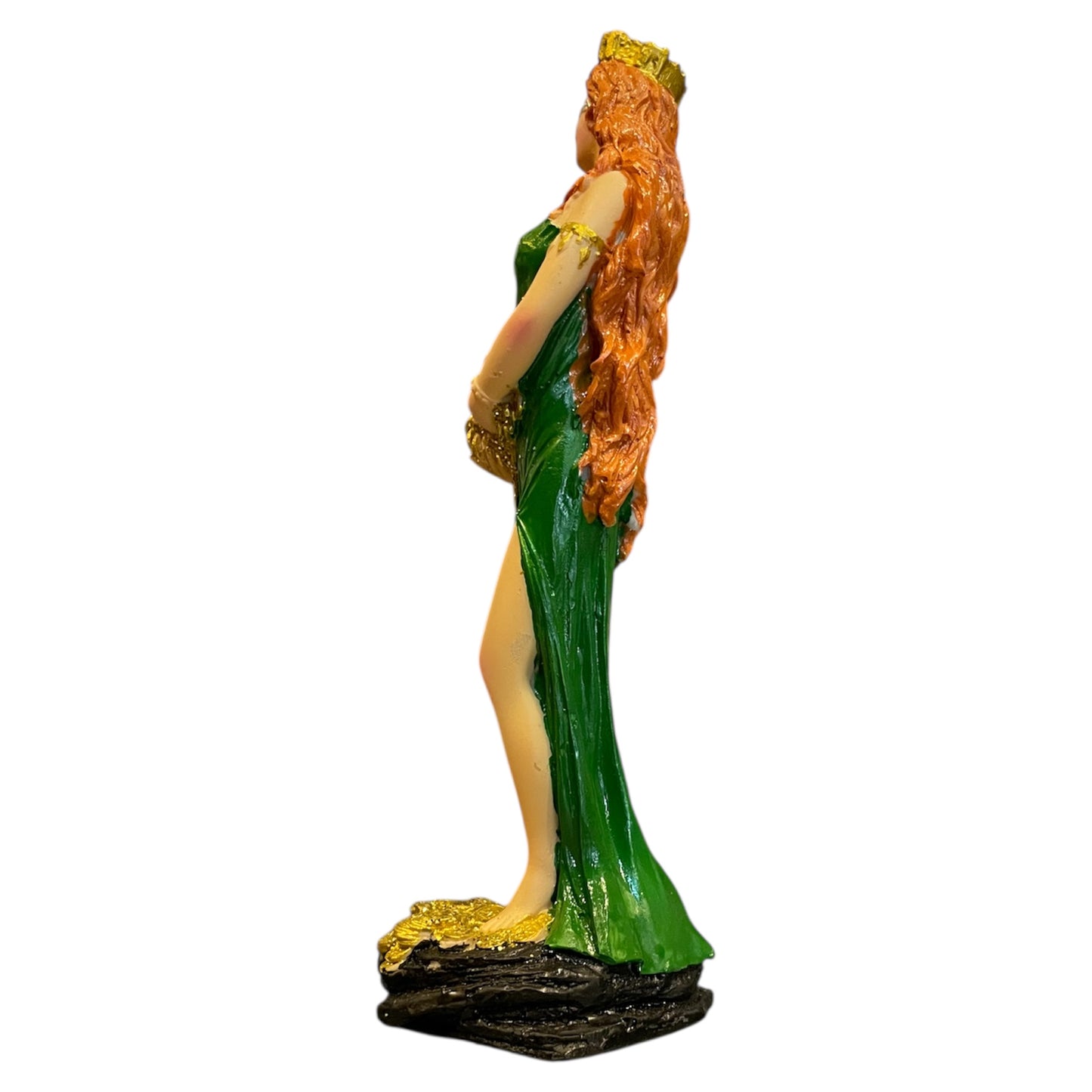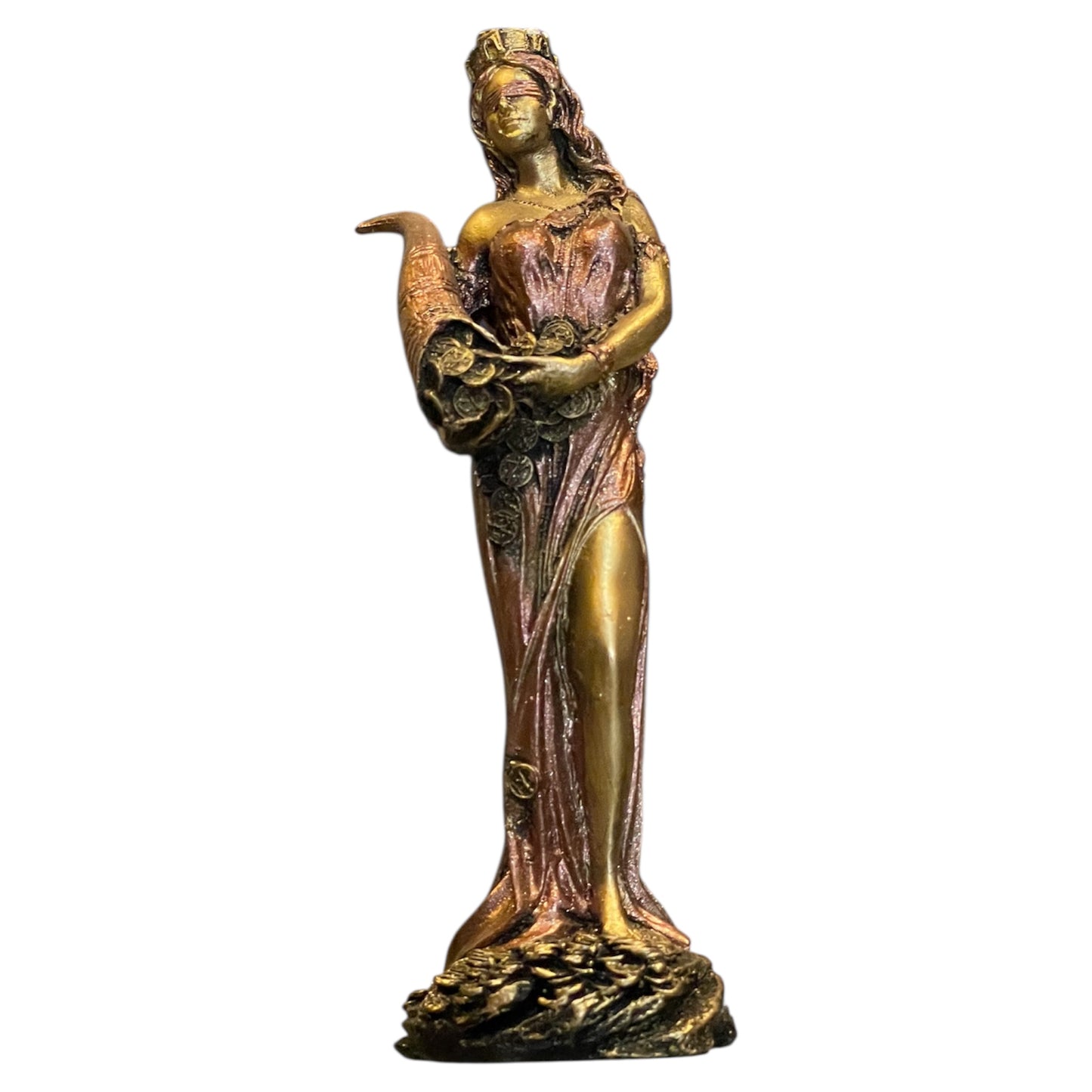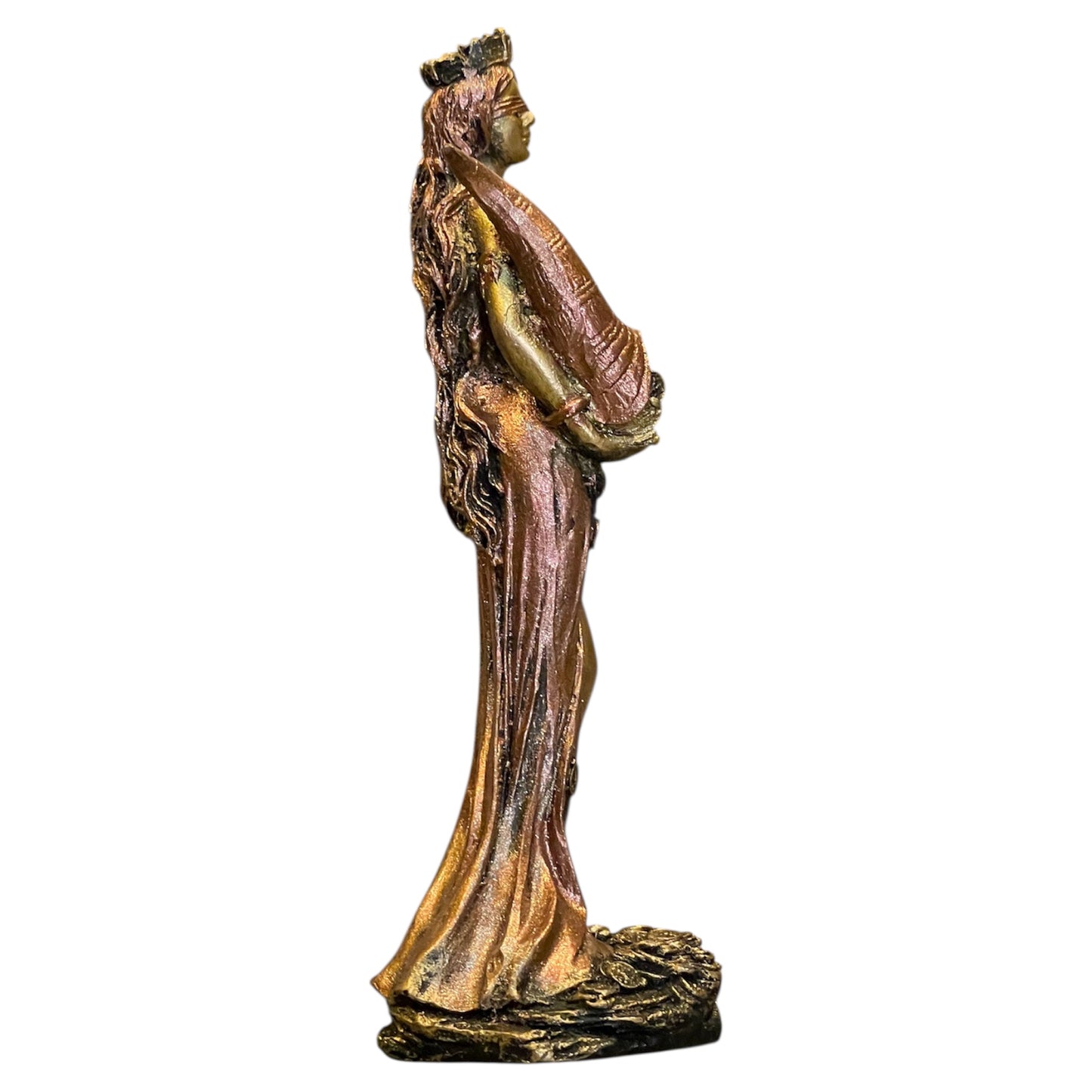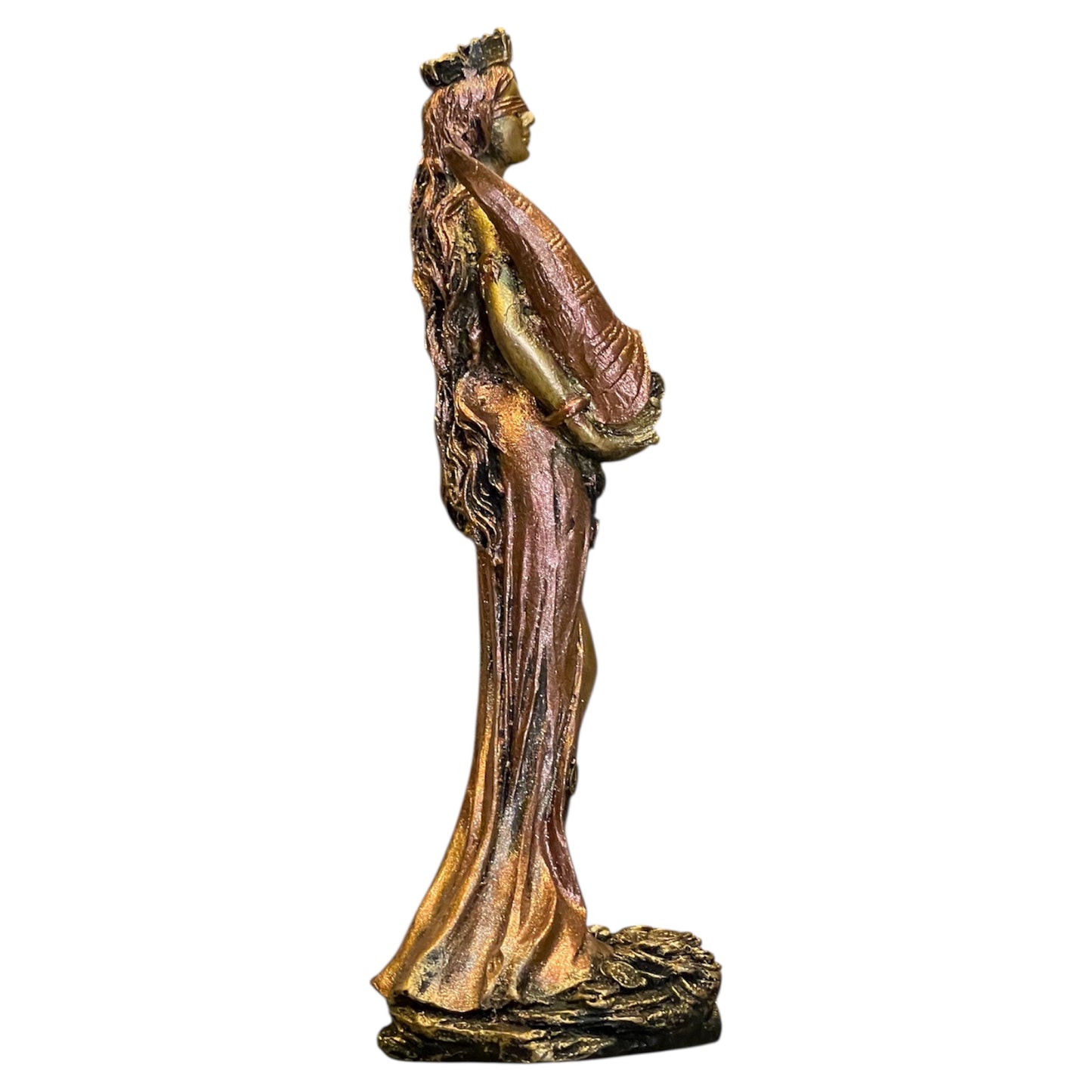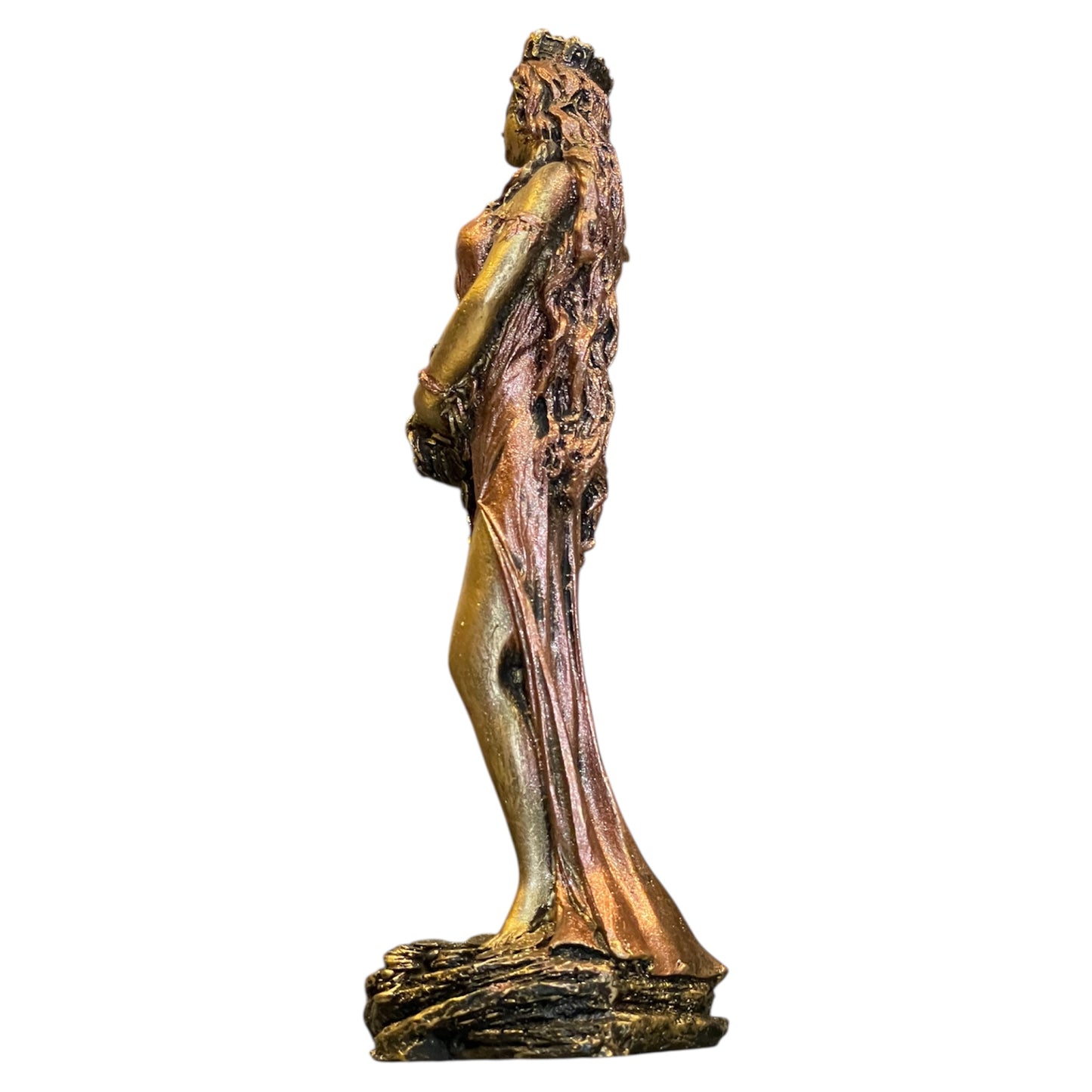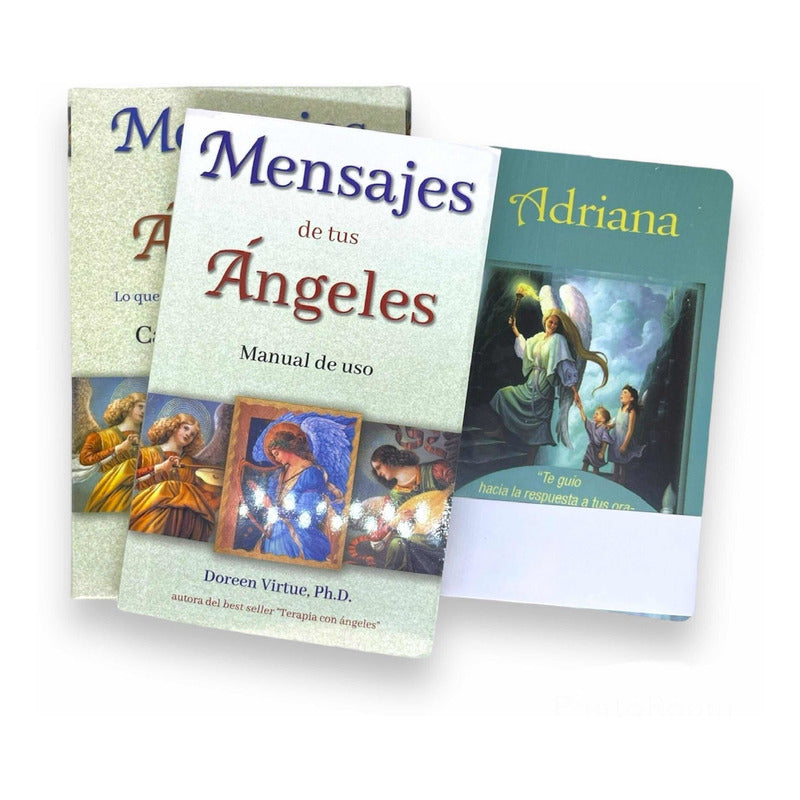1
/
of
18
Goddess of Fortune, Abundia Resin 18 cm
Goddess of Fortune, Abundia Resin 18 cm
Regular price
$ 250.00 MXN
Regular price
Sale price
$ 250.00 MXN
Shipping calculated at checkout.
Quantity
Low stock: 2 left
Couldn't load pickup availability
Its allegory was often the wheel of fortune, a kind of roulette wheel that represented chance or the randomness of good or bad luck; as a representation of its positive aspect, it was often represented with the cornucopia.
Attached to Fortune was Opportunity (often confused with Fortune herself), who was represented almost completely bald, with only a lock or a small tuft of hair, since good Fortune was understood as an Opportunity that was difficult to catch (just as it is difficult to catch the hair of a bald person). In other representations, Fortune appeared in a similar way to Justice: with veiled eyes or with a rudder since she steered the fate of humanity.
While the deity Fortuna was almost always considered fasta ("lucky," positive for people), her other possible aspects were distinguished with adjectives: Fortuna Dubia (Dubious Fortune), Fortuna Brevis (Short Fortune), and Fortuna Mala (Bad Fortune). The only thing they all agreed on was that she was the most capricious goddess of Olympus.
The cult of Fortuna was introduced to Rome by Servius Tullius, who had a temple in the Forum Boarium and a public sanctuary on the Quirinal Hill. She had an oracle at Praeneste, and an oak tree was sacred to her. In Praeneste, a piece of oak was awarded to each newborn baby; depending on how this happened, the baby was supposed to receive its fortune. June 11 was also sacred to Fortuna, during which time a festival called Fors Fortuna was held. She was also considered the propitiator of motherhood. This deity was also called Annonaria, and the name came from the Old Italic Vortumna ('she who rotates—makes the year spin'). There is no established or canonical genealogy of this deity, but she was considered the daughter of Jupiter, as indicated by an inscription in the sanctuary of Praeneste and Juno (a statue depicts Juno suckling Fortuna). As one of the deities who exercised patronage of Rome, she was called Fortuna Populi Romanii ('the Fortune of the people of the Romans').
Share
